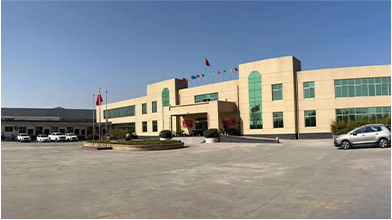Oct . 16, 2024 14:40 Back to list
calcined bauxite
Calcined bauxite is an industrial mineral that plays a crucial role in various applications, particularly in the production of aluminum and refractory materials. Derived from the mineral bauxite, calcined bauxite undergoes a high-temperature treatment that removes moisture and enhances its properties, allowing for a wide range of uses in different industries.
The calcination process involves heating raw bauxite to temperatures around 1000 to 1600 degrees Celsius. This thermal treatment transforms the material into highly stable alumina, which is essential for the production of aluminum oxide. The alumina produced from calcined bauxite is critical in the aluminum smelting process. In this process, aluminum is extracted from bauxite ore through electrolysis, a method that is energy-intensive but necessary for producing pure aluminum. The quality of the calcined bauxite directly affects the efficiency and effectiveness of the aluminum refining process.
In addition to aluminum production, calcined bauxite is an essential ingredient in the manufacture of refractory materials. Refractories are materials that can withstand high temperatures without melting or breaking down, making them ideal for use in furnaces, kilns, and reactors. Industries such as steelmaking, cement, and glass manufacturing rely on refractory materials to maintain the structural integrity of their production equipment. The high alumina content in calcined bauxite provides excellent resistance to thermal shock, ensuring durability even under extreme conditions.
Another significant application of calcined bauxite is in the field of abrasives
. Due to its hardness and resistance to wear, calcined bauxite is utilized in the production of grinding wheels, sandpapers, and other abrasive products. The mineral’s effectiveness as an abrasive material makes it advantageous for various industries, including construction and metalworking, where precise and efficient material removal is required.calcined bauxite

Furthermore, calcined bauxite is also used in producing high-friction products, such as anti-slip surfaces and road safety applications. The granular form of calcined bauxite provides an excellent grip, making it a preferred choice for enhancing safety in walkways, ramps, and vehicles. By incorporating calcined bauxite into these surfaces, manufacturers can improve traction and reduce the risk of slips and falls.
Environmentally, calcined bauxite is more favorable than some alternatives, as its production process generates less waste and energy consumption. Additionally, the abundant availability of bauxite ore in many regions of the world supports the sustainable sourcing of this mineral. This means that not only can industries benefit from the high-performance capabilities of calcined bauxite, but they can also do so with a lower environmental impact.
In conclusion, calcined bauxite is a versatile and valuable industrial mineral with numerous applications in aluminum production, refractories, abrasives, and safety materials. Its unique properties and the benefits derived from its use make it an essential component in modern industry. As industries continue to develop and seek sustainable solutions, the importance of calcined bauxite is likely to grow, cementing its role as a critical resource in various sectors.
-
Eco-Friendly Granule Covering Agent | Dust & Caking Control
NewsAug.06,2025
-
Fe-C Composite Pellets for BOF: High-Efficiency & Cost-Saving
NewsAug.05,2025
-
Premium Tundish Covering Agents Exporters | High Purity
NewsAug.04,2025
-
Fe-C Composite Pellets for BOF | Efficient & Economical
NewsAug.03,2025
-
Top Tundish Covering Agent Exporters | Premium Quality Solutions
NewsAug.02,2025
-
First Bauxite Exporters | AI-Optimized Supply
NewsAug.01,2025
